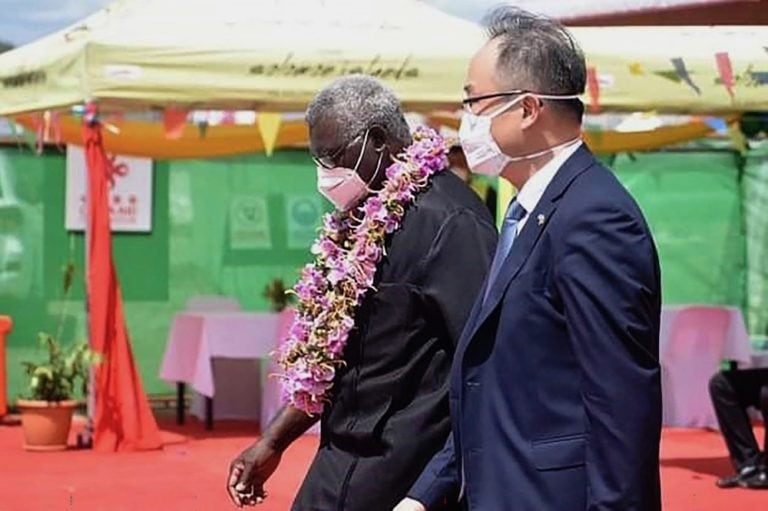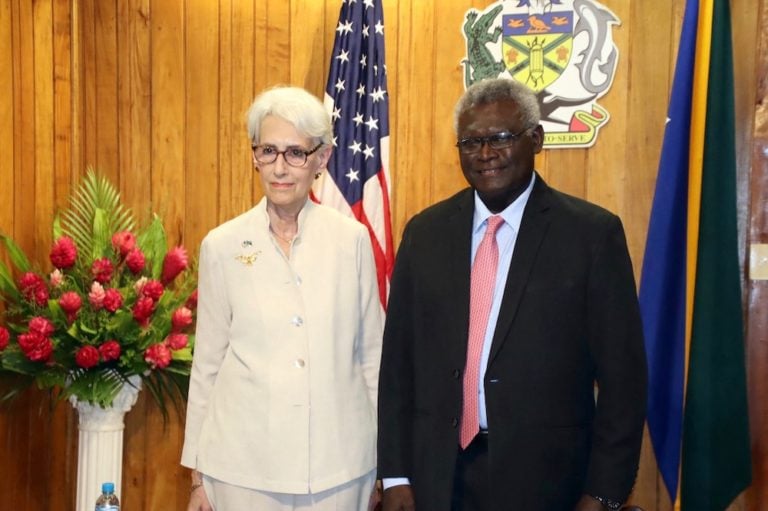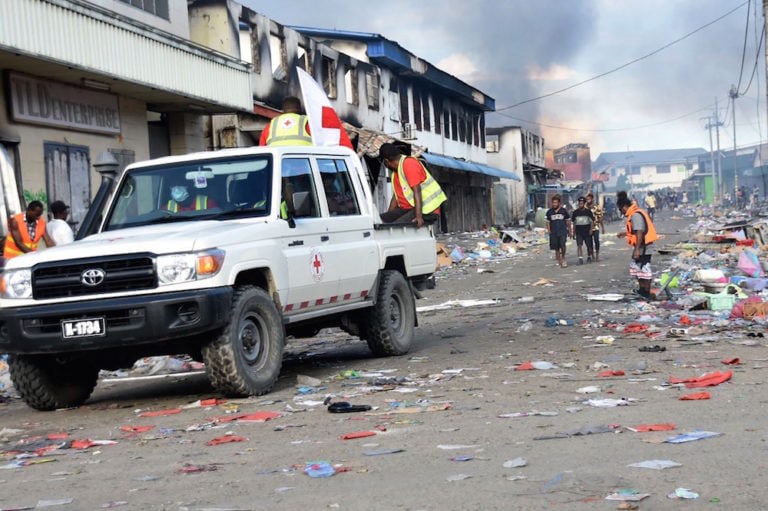(PINA/IFEX) – On 2 October 2000, a militia spokesperson in the Solomon Islands denied he threatened local journalist Duran Angiki. He said the militia would ensure Angiki and his family are safeguarded. Lawyer and former parliamentarian Andrew Nori, spokesperson for the Malaita Eagle Force, called a news conference in Honiara, the capital. He challenged allegations […]
(PINA/IFEX) – On 2 October 2000, a militia spokesperson in the Solomon Islands denied he threatened local journalist Duran Angiki. He said the militia would ensure Angiki and his family are safeguarded. Lawyer and former parliamentarian Andrew Nori, spokesperson for the Malaita Eagle Force, called a news conference in Honiara, the capital. He challenged allegations made by Reporters sans frontières (RSF) and Amnesty International that he threatened Angiki, who works as a freelance journalist.
RSF reported that on 27 September, Nori phoned Angiki at his home, threatening him with “reprisals” after the publication of an article on two web sites stating Nori had received money from the authorities. RSF said Nori told Angiki that he and his family “were in danger” if he failed to withdraw his articles and write a letter of apology.
Nori told the Honiara news conference that Angiki called him on 28 September, and denied that he had called Angiki, as claimed. He said Angiki told him he had heard he and his family might be at risk. Nori said he advised Angiki of the dangers of making “provocative, sensational and false statements” during the current crisis. He said he also spoke to Angiki about what Nori called “absolutely false” statements reporting that he is charging the Solomon Islands government one million Solomon Islands dollars (approx. US$198,000) for work he is doing. Nori said he had not made threatening phone calls to any local journalists or any members of Angiki’s family. Nori said he has now undertaken to contact Angiki’s family members to discuss any outstanding issues at the family level.
Nori said that when the joint operation of Malaita Eagle Force and elements of the police paramilitary force took control of Honiara on 5 June, he made it clear there would be unrestricted media freedom. “This has been the case all along,” he said. “To local journalists, please carry on with your reporting on current events. We all have responsibilities to the community to divulge information to them. As Solomon Islanders, however, you do have the temptation of hiding under your professional privileges to
discredit and condemn persons who are involved in the current conflict. I beg you to act with restraint and to be fair in your reporting.”
Senior journalists in Honiara told PINA that Angiki is trying to report what is happening in Honiara but is actually in Gizo, an island in the north-west of the country. As a result, Angiki – who last year graduated from the University of the South Pacific journalism programme – is not getting his information first hand, they said. They said Nori and the Malaita Eagle Force have not attempted to curb media freedom.
Background Information
A ceasefire in the Solomon Islands follows ethnic conflict which engulfed Guadalcanal, the island on which the capital, Honiara, is located. Peace talks started aboard a New Zealand navy ship off Honiara, and are due to continue in Cairns, Australia, this month. The ethnic conflict began when Guadalcanal militants tried to drive out settlers from another island, Malaita, claiming they dominated government and business and were taking over Guadalcanal land.
Honiara has been under the control of a joint operation of the Malaita Eagle Force militia and elements of the paramilitary police field force. The Guadalcanal countryside is largely under the control of Guadalcanal’s Isatabu Freedom Movement militia.


